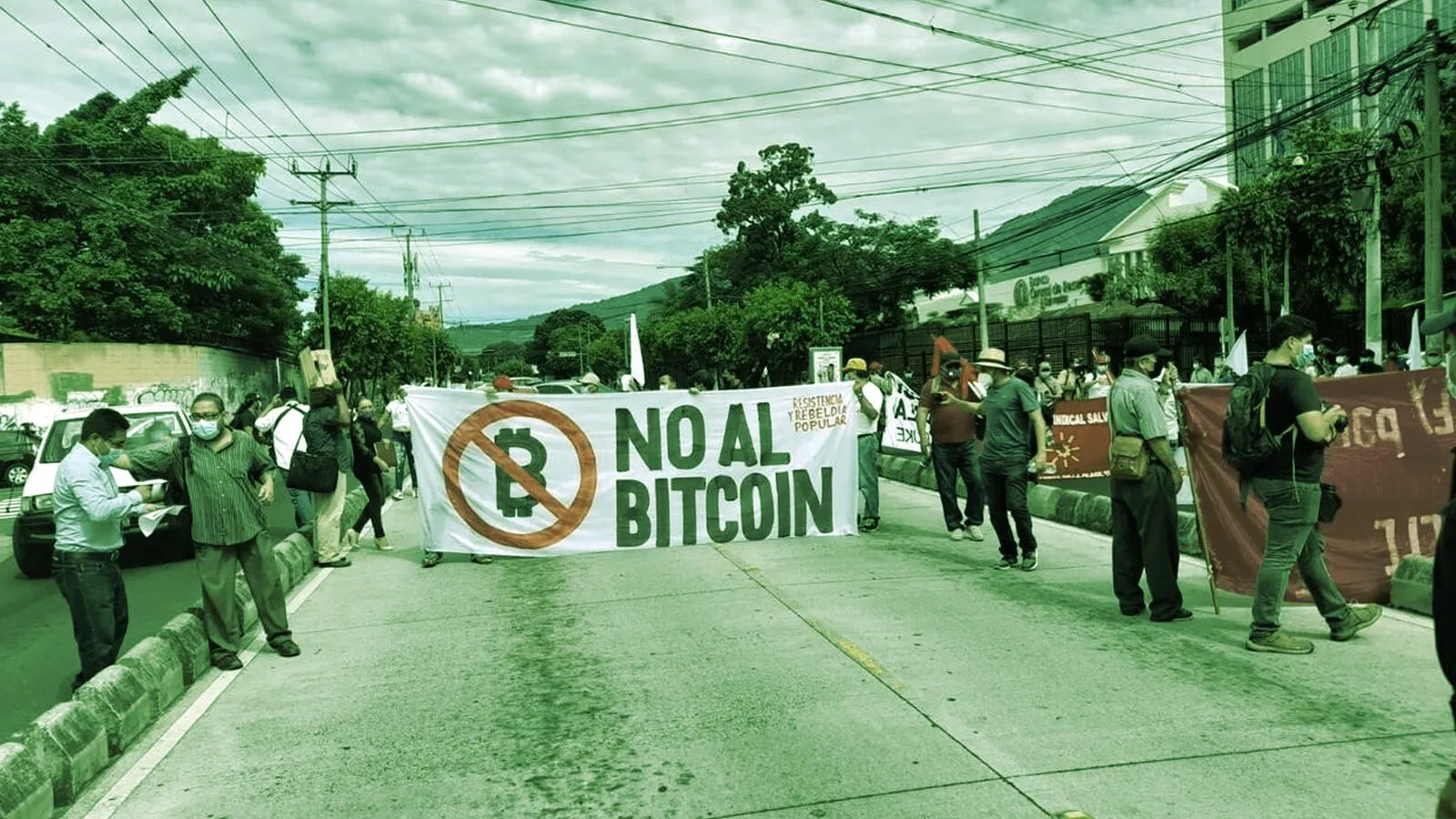In brief
- The Bitcoin Law makes BTC legal tender in El Salvador.
- It's not yet very popular in the country.
Despite a three-month ban on protests to ostensibly prevent the spread of COVID, a group of Salvadorans composed of leftist unions, student associations, and others gathered at the Legislative Assembly yesterday to protest the country's adoption of Bitcoin as its national currency.
The group, organized by the "Block of Resistance and Popular Rebellion," used banners and slogans to demand that the so-called Bitcoin Law, which makes BTC legal tender and obligates businesses to accept it, be revoked.
But the protestors, like an estimated 77% of Salvadorans, think it's a bad idea.
"It is a law that generates legal insecurity and that could be used to defraud users and also facilitate money and asset laundering," said activist Idalia Zuñiga.
Another protestor expressed her concerns about Bitcoin's price volatility. “For those earning a minimum wage, in one moment you may have $300 in Bitcoin and the next day those $300 can turn into $50," she said, before pointing to BTC's price plunge from a high of $63,595 in April to half that today.
The protesters' concerns are not new. Major regulators have pointed to scams and money laundering schemes involving Bitcoin and other cryptocurrencies as aspects holding digital assets back from global acceptance.
Protestors can also rightfully grumble over how the law came into being as it's a reminder of President Nayib Bukele's control over all branches of the Salvadoran government. Despite the fact that a bill must normally go through a strenuous process of study, consultation, and adaptation, the Bitcoin Law was approved in less than six hours from the time Bukele officially presented it to Congress.
Although it has already been approved, the Bitcoin Law stipulates a period of 90 days to become effective, meaning Salvadorans will be obligated to accept Bitcoin come September.
Most aren't ready. A recent survey revealed that about 77% of the country's population rejects Bukele's Bitcoin Law, and most of the country's remittance recipients and merchants would prefer to handle dollars rather than Bitcoin.
The opposition party, which once counted Bukele as a member, has filed a lawsuit to prevent the implementation of the Bitcoin Law.





